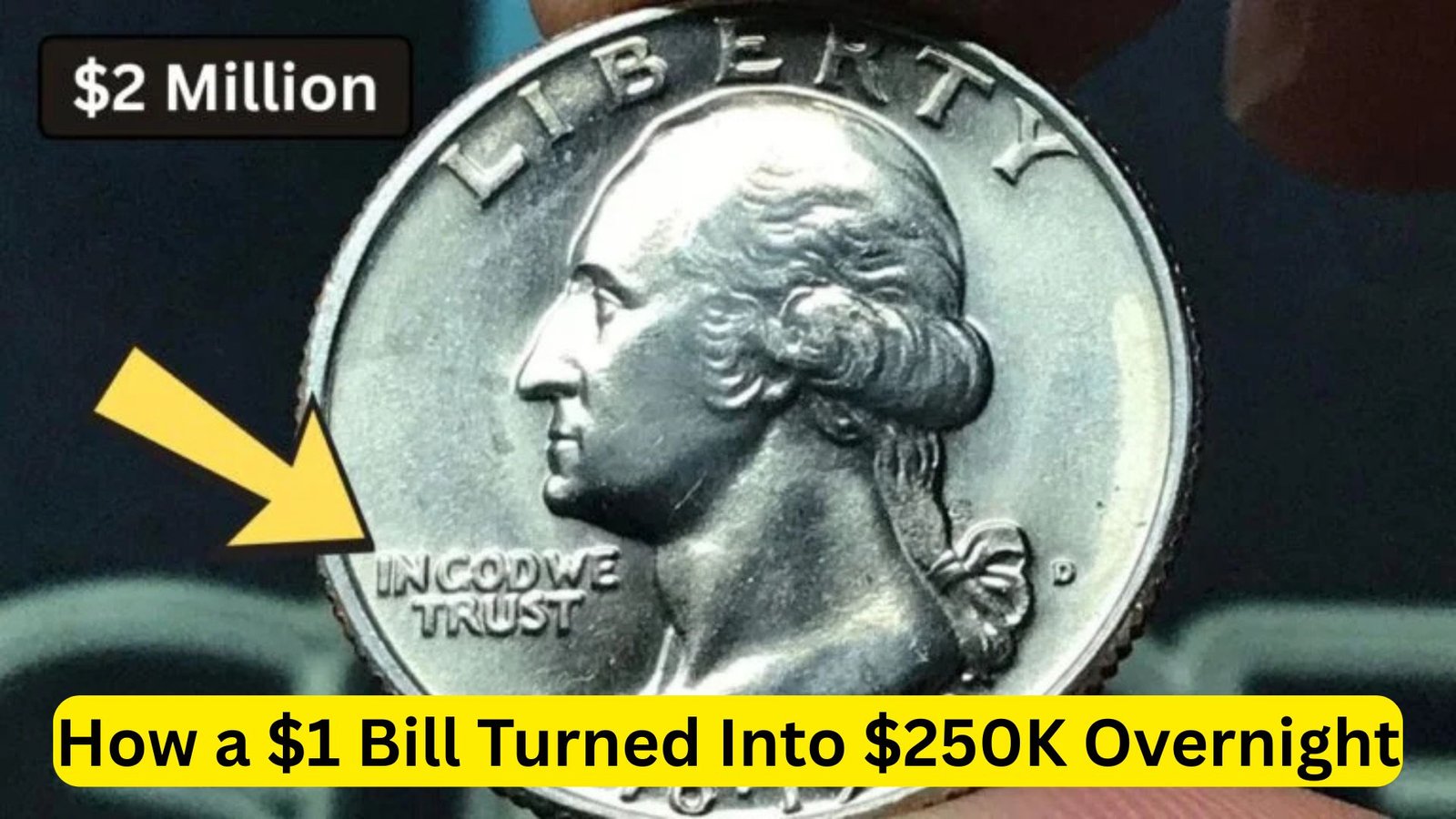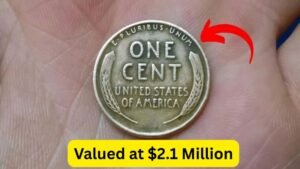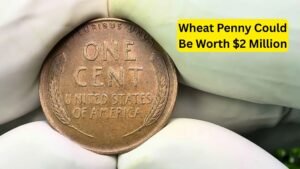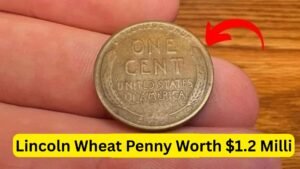Have you ever checked your loose change for a hidden treasure? A 1976 quarter recently turned into a life-changing $2 million for one lucky person. This incredible story proves that everyday coins can hold extraordinary value. In this article, we’ll dive into how this rare 1976 quarter became a jackpot, why it’s so valuable, and how you can spot similar treasures in your own pocket change. Let’s explore this fascinating tale of luck and numismatics (coin collecting) in simple terms!
What Makes the 1976 Quarter So Special?
The 1976 quarter, also known as the Bicentennial quarter, was minted to celebrate America’s 200th birthday. Most of these quarters are worth just 25 cents, but a rare version recently sold for $2 million at an auction. So, what makes this particular coin so valuable? Let’s break it down.
A Rare Minting Error
The $2 million 1976 quarter is special because of a minting error. Some quarters from that year were accidentally struck on silver planchets (the blank metal discs used to make coins) instead of the standard copper-nickel mix. These silver errors are incredibly rare, making them highly sought after by collectors.
Why Collectors Love It
Coin collectors, or numismatists, are always on the lookout for unique coins. The 1976 quarter with this error is a dream find because:
- It’s a one-of-a-kind mistake from the U.S. Mint.
- Its historical significance as a Bicentennial coin adds appeal.
- Only a handful of these silver error quarters are known to exist.
This combination of rarity, history, and demand drove the coin’s value to a staggering $2 million.
The Journey of the Million-Dollar 1976 Quarter
The story of this 1976 quarter began decades ago when it was first minted. It likely circulated unnoticed for years, tucked away in wallets or cash registers. Then, a sharp-eyed collector spotted it, recognizing its unusual weight and shine. After expert verification, the coin was confirmed as a silver error quarter and sold at a high-profile auction for $2 million.
From Pocket to Auction
Here’s how this 1976 quarter went from ordinary change to a collector’s jackpot:
- Minted in 1976: The U.S. Mint produced millions of Bicentennial quarters, but a few were struck on silver planchets by mistake.
- Circulation: The coin likely passed through many hands, unnoticed for years.
- Discovery: A collector or dealer recognized its unique traits, such as its silver composition.
- Authentication: Experts confirmed it was a genuine error coin.
- Auction: The coin was sold at a major auction, fetching $2 million due to its rarity and demand.
Why Is the 1976 Quarter Worth So Much?
Several factors make this 1976 quarter a multi-million-dollar treasure. Let’s look at the key reasons:
Rarity
Only a tiny number of 1976 quarters were minted on silver planchets. This scarcity makes them incredibly valuable to collectors.
Condition
The coin’s condition plays a big role in its value. A well-preserved 1976 quarter with minimal wear can fetch a higher price at auction.
Historical Significance
The Bicentennial design, featuring a drummer boy on the back, celebrates America’s 200th anniversary. This patriotic connection adds to the coin’s allure.
Collector Demand
The coin collecting community is passionate, and rare finds like this 1976 quarter create a bidding frenzy at auctions, driving up the price.
| Factor | Impact on Value |
|---|---|
| Rarity | Extremely few silver error 1976 quarters exist, making them highly valuable. |
| Condition | Coins in excellent condition are worth more due to their pristine appearance. |
| Historical Significance | The Bicentennial design adds emotional and historical appeal. |
| Collector Demand | High demand from collectors pushes auction prices to millions. |
How to Spot a Valuable 1976 Quarter
Could you have a million-dollar 1976 quarter in your pocket? While it’s unlikely, it’s worth checking! Here’s how to identify a potential treasure:
Step 1: Check the Date
Look for quarters marked “1776-1976.” These are Bicentennial quarters, and the rare silver versions were minted in that year.
Step 2: Examine the Weight
A standard 1976 quarter weighs about 5.67 grams. A silver error quarter is heavier, around 6.3 grams. Use a precise scale to check.
Step 3: Look at the Color
Silver error quarters have a shinier, more metallic appearance compared to the copper-nickel quarters, which look duller.
Step 4: Get It Authenticated
If you suspect you have a rare 1976 quarter, take it to a professional coin dealer or grading service like PCGS or NGC for verification.
Tips for Coin Collectors
If this story inspires you to start collecting coins, here are some beginner-friendly tips to find valuable coins like the 1976 quarter:
- Check Your Change: Always inspect your pocket change for unusual coins.
- Learn About Errors: Minting errors, like the silver 1976 quarter, are often the most valuable.
- Join a Community: Connect with other collectors through online forums or local coin clubs.
- Invest in Tools: A magnifying glass, scale, and coin guides can help you identify rare finds.
- Stay Patient: Finding a valuable coin takes time, but the thrill of discovery is worth it!
The Bigger Picture: Why Coin Collecting Is Exciting
The story of the 1976 quarter shows why coin collecting is such a thrilling hobby. Every coin has a story, and some, like this one, can change lives. Whether you’re a beginner or a seasoned collector, the hunt for rare coins is a mix of history, luck, and treasure hunting.
Why Start Collecting?
- Affordable Hobby: You can start with just your pocket change.
- Educational: Learn about history, economics, and art through coins.
- Potential Rewards: Rare finds like the 1976 quarter can be worth a fortune.
Conclusion: Could You Find the Next Million-Dollar Coin?
The 1976 quarter that sold for $2 million is a reminder that treasures can hide in plain sight. By learning to spot rare coins and understanding their value, you could uncover a jackpot in your own pocket change. So, next time you get a quarter, take a closer look—it might just be worth millions!
Start checking your coins today, and who knows? You could be the next person to turn pocket change into a life-changing fortune. Happy hunting!




